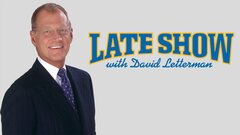Lou Reed

Musician • Singer • Songwriter
Birth Name: Lewis Allan Reed
Birth Date: March 2, 1942
Death Date: October 27, 2013 — 71 years old
Birth Place: Freeport, New York
Spouses: Laurie Anderson
Bands: The Velvet Underground
One of the most influential figures in rock 'n' roll, Lou Reed was the co-founder and primary songwriter for the Velvet Underground, whose uncompromising records in the late 1960s sold few copies but, as producer Brian Eno once said, influenced everyone who heard them to start their own bands. His stark, highly poetic lyrics, rich with the drama and grit of the New York streets, placed him as a forerunner to the dark, desperate energy of punk, metal and avant-garde bands that followed in his wake, though the mercurial Reed would refuse allegiance to these movements. His eclectic inclinations were also reflected throughout his solo career, which encompassed the bleak beauty of Berlin (1973), the political charge of New York (1990), and the defiant experimentalism of Metal Machine Music (1975), a polarizing LP of feedback and noise.
Throughout his career, Reed bucked industry expectations in favor of his own artistic instincts, which resulted in numerous commercial ups and downs. But Reed's music, steeped in the raw power of rock and the transformative nature of poetry, remained an artistic high point in popular music that set the bar for countless musicians in their own career, which in turn enshrined him as one of rock's most influential figures. His October 2013 death occasioned heartfelt eulogies and fond remembrances that belied his flinty, tough guy persona.
Born Lewis Allan Reed on March 2, 1940 in Brooklyn, NY, Lou Reed was raised in Freeport, Long Island by his parents, accountant Sidney Reed and his wife, Toby. Like many adolescents in the 1950s, Reed was introduced to rock through rhythm-and-blues music and doo-wop, and soon taught himself to play guitar. He spent his teenage years in a variety of bands, and waxed his first record, "Leave It For Me/So Blue," in 1958 as a member of the Jades, a vocal group.
During this period, Reed also received electroconvulsive therapy in an attempt to cure his bisexuality. He survived these sessions and attended Syracuse University in 1960, where he studied under the poet Delmore Schwartz, who had a significant influence on Reed's own writing. Reed also hosted a late-night program on the school's radio station that focused on his primary musical interests: blues, doo-wop and the free jazz of such pioneering performers as Cecil Taylor and Ornette Coleman. These disparate elements would serve as the foundation for Reed's career in music for the next five decades.
After graduating from Syracuse's College of Arts and Sciences in 1964, he became an in-house songwriter for Pickwick Records; his high point for the label was a parody of dance craze songs called "The Ostrich." Pickwick quickly assembled a band behind Reed to promote the record; dubbed the Primitives, they included Welsh musician John Cale, who had been playing with avant-garde composer La Monte Young. Reed and Cale struck a friendship based in part on their shared interest in experimental music, and soon added guitarist Sterling Morrison, a friend of Reed's at Syracuse, to a lineup that was initially known as the Warlocks and later the Falling Spikes. A notorious paperback about the sexual subculture of the 1960s would later provide their final and enduring band name: the Velvet Underground.
With the addition of drummer Maureen Tucker, the group began playing on the New York club circuit, where their droning sound and taboo subject matter - among Reed's original songs during this period were "Heroin" and "I'm Waiting for the Man," which addressed drug usage, and "Venus in Furs," a paean to a masochistic relationship - caught the attention of underground artist Andy Warhol. He assumed managerial duties for the band, using his notoriety to broker a deal with Verve Records while providing a spectacular showcase for their music in the Exploding Plastic Inevitable, a multimedia roadshow that featured the Velvet Underground and members of Warhol's Factory performing against a backdrop of 16mm films and psychedelic lighting. At Warhol's insistence, the band was joined by German model Nico, whose deep, heavily-accented vocals offered a unique counterpoint to the signature drone of Reed's guitar and Cale's electric viola.
Nico, who would become romantically involved with both Reed and Cale before embarking on her own mercurial solo career, was featured on three songs from the band's debut album, The Velvet Underground and Nico (1967), which featured a now-iconic cover design by Warhol featuring a yellow banana sticker which, when peeled, revealed a phallic, flesh-colored fruit beneath. Its dark subject matter earned it almost instantaneous notoriety, with radio stations refusing to play tracks from the album. Sadly, the furor over content obscured the fragile beauty of songs like "Sunday Morning" and "I'll Be Your Mirror," as well as the operatic sweep of "All Tomorrow's Parties."
The record debuted at the bottom of the Billboard albums chart in the spring of 1967 and rose to No. 171 over the course of the next year. Few if any in the industry or critical circles at the time could predict that The Velvet Underground and Nico would become one of the most influential rock-n-roll albums of the 20th century. After the release of their debut album, Reed and his bandmates parted ways with both Warhol and Nico before commencing on their second LP. White Light/White Heat (1968) eschewed the few pop-friendly elements of its predecessor to adopt a largely abrasive experimental sound on par with the high volume, extended improvisations of their live performances.
Reed's lyrical content continued its dalliance with trangressive themes, including botched surgery ("Lady Godiva's Operation"), methamphetamine use ("White Light/White Heat") and the 17-minute "Sister Ray," which concerned a drug-fueled orgy. Unsurprisingly, the record also stalled upon its release in early 1968. Frustrations over lack of recognition for their work, as well as creative differences, fueled Cale's departure from the group that same year; he was replaced by Doug Yule for their self-titled third album, a gentler, folk-driven affair that failed to break into the Billboard Top 200.
By 1970, the band had been purged from the Verve roster, and an attempt to deliver a hit record for their new label, Atlantic, with Loaded, produced two of Reed's most enduring songs, "Sweet Jane" and the bracing "Rock and Roll," but no chart activity. Reed departed the group shortly before the record's completion to lick his wounds while working at his father's accounting firm as a typist. The following year, Reed signed with RCA Records for his self-titled solo debut, which was comprised largely of reworked Velvet songs, but the album received a chilly response from listeners.
While recording the album in London, Reed met David Bowie, an unabashed fan of the Velvet Underground who co-produced Reed's next album, Transformer, with Mick Ronson, lead guitarist from Bowie's band, the Spiders from Mars. The record fused Reed's streetwise, hard rock sound with the growing glam movement that Bowie had spearheaded, and produced what was arguably Reed's signature song, "Walk on the Wild Side," a jazzy homage to five members of Warhol's Factory that broke into the Top 20 on the U.S. singles chart. Another track from the album, the wistful "Perfect Day," would later enjoy both revived interest from its inclusion on the "Trainspotting" (1996) soundtrack and a 1997 re-recording for charity that featured an all-star lineup of musicians with Reed.
Unfortunately, the unexpected success of Transformer would be followed by a long period of commercial frustration and personal decline. RCA nearly canceled the release of his third solo album, Berlin (1973), a deeply tragic song cycle about a couple's descent into drug addiction, depression and suicide. Though a Top 10 album in the U.K., critical response in America was savagely negative, which exacerbated Reed's disillusionment with the music industry.
His drug usage deepened during this period, eventually blossoming into a full-fledged addiction to heroin. Sensing, perhaps, that the public viewed him as a purveyor of decadence, he played to that image for much of the 1970s, miming heroin injections onstage while putting forth a combative persona in interviews. This confrontational attitude won him media attention and, for a time, a small but devoted following which helped to send his 1974 studio album Sally Can't Dance, and the live effort Rock n Roll Animal (1974) into the Top 50. RCA again pressured Reed to produce another hit album, which resulted in Metal Machine Music (1975), a record comprised entirely of grinding feedback and guitar effects. Viewed as a petulant attempt to close out his contract, the album, which was returned by the thousands to record stores by dismayed buyers, was later considered a forerunner of industrial music.
Reed appeared revitalized at the end of the 1970s with a string of well-regarded rock albums, beginning with 1979's The Bells. He appeared to abandon his rock 'n' roll animal persona for a more thoughtful, sober approach, as evidenced by The Blue Mask (1982), which featured former Heartbreakers guitarist Robert Quine, and Legendary Hearts, both of which addressed issues of relationships, addiction and familial strife.
By 1984, Reed even appeared upbeat, as evidenced by the joyous bounce of "I Love You, Suzanne" from his New Sensations LP. Some of the newfound positivity was due in part to his 1980 marriage to British designer Sylvia Morales. During this era, he briefly explored the world of acting, appearing in Paul Simon's "One-Trick Pony" (1980) and Allan Arkush's oddball rock comedy "Get Crazy" (1983).
However, his true artistic and commercial comeback would be 1989's New York, a brittle polemic assault on American and world woes couched in straightforward rock. Praised as his best album in over a decade, New York reached the Top 40 on the Billboard albums chart and preceded a lengthy string of exceptional record releases, including Songs for Drella (1990), a collaboration with John Cale that paid tribute to Andy Warhol following the artist's death in 1987.
Their re-teaming was followed by a reunion of the original Velvet Underground lineup, a historic event that few music fans ever thought possible. A European tour followed in 1993 before old tensions between Reed and Cale brought the reunion to an end, dashing hopes for many American fans.
Reed then returned to his solo career, recording Magic and Loss (1992), a potent rumination on mortality inspired by the deaths of famed songwriter Doc Pomus and Kenneth Rapp, a former Factory habitué known as Rotten Rita who served as an inspiration for many of the figures in that potent group. Reed would appear onstage with Cale and Tucker one final time for their 1996 induction into the Rock and Roll Hall of Fame, where they performed a new composition, "Last Night I Said Goodbye to My Friend," which paid tribute to Sterling Morrison, who had died in 1995.
He closed out the 1990s with a string of albums, from the uneven Set the Twilight Reeling (1996) to 2000's Ecstasy (2000), which addressed the collapse of his marriage to Morales and subsequent relationship with artist Laurie Anderson. He also contributed to Robert Wilson's "Time Rocker" (1996) a musical adaptation of The Time Machine, and participated in the Grammy-winning "Lou Reed: Rock and Roll Heart" (1998). The new millennium found Reed exploring the works of Edgar Allan Poe through a stage presentation with Robert Wilson called "Poe-Try" and later a two-CD album The Raven (2003), a collection of songs and spoken word efforts that featured his first recorded collaboration with David Bowie since Transformer as well as Ornette Coleman and actors Christopher Walken, Willem Dafoe and Steve Buscemi.
A world tour in 2003, which featured Reed's T'ai Chi instructor performing alongside him at certain concerts, was documented on the live CD Animal Serenade (2004). Two years later, he revived Berlin as a live stage show at St. Ann's Warehouse in Brooklyn, NY which featured a stage design by painter Julian Schnabel and collaborations with singer Antony Hegarty of Antony and the Johnsons. A live concert film, directed by Schnabel, followed in 2008. Reed continued to explore and expand on his back catalog in 2008 as part of Metal Machine Trio, a free improvised group inspired by his Metal Machine Music album.
He later surprised many by teaming with metal superstars Metallica, with whom he performed two of his solo numbers at the Rock and Roll Hall of Fame's 25th Anniversary Concert in 2009. The praise afforded this brief collaboration did not carry over to their full-length record, Lulu (2011), which was panned with a fury that echoed the response to Berlin.
The following year, Reed and producer Hal Willner launched their own radio show, "New York Shuffle," on BBC Radio's 6 Music channel. Lou Reed underwent a liver transplant in May 2013, after canceling several concerts following the release of Lulu, including an appearance at the 2013 Coachella festival. He died on October 27, 2013. By Paul Gaita.
Credits

Beside Bowie: The Mick Ronson Story

Later...With Jools Holland: Legends

Lou Reed: Busload of Faith

Lou Reed: Live in Archa Prague

Lou Reed: Walk on the Wild Side

Lou Reed: Perfect Day

Lou Reed: The Original Wrapper

The 99 Percent: Occupy Everywhere

The Genius of David Bowie

Music Line

Lou Reed's Berlin

Lou Reed Live Performances 1972 & 1974

mindFLUX

Arthur and the Two Worlds War

Red Shirley

Video Killed the Radio Star

Arthur and the Great Adventure

The Killers Feat. Lou Reed: Tranquilize

Berlin

Berlin

Velvet Underground: Under Review

Lou Reed: Don't Talk to Me About Work

Lou Reed: I Love You, Suzanne

Lou Reed: Legendary Hearts

Lou Reed: My Red Joystick

Lou Reed: No Money Down

Lou Reed: Women

Lou Reed - Transformer (Classic Album)

Prozac Nation

Before Night FallsStream

A Night With Lou Reed

Lou Reed: Rock and Roll Heart

Lou Reed: Rock and Roll Heart

Classic AlbumsStream

Blue in the Face

September Songs: The Music of Kurt Weill

Late Show With David Letterman

Tan Lejos y Tan Cerca

Faraway, So Close!

Later ... with Jools Holland

ナイト・ウィズ・アンディ・ウォーホル

Get Crazy

Lou Reed in concerto

One-Trick Pony















